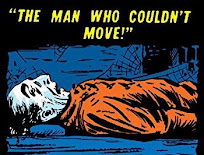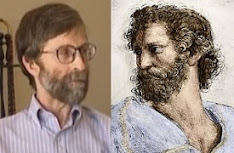Friday, February 25, 2022
Taylor on cognition, teleology, and God
In his book Metaphysics,
a classic brief and lucid introduction to the subject, Richard Taylor devotes a
chapter to the topic of God. Most of the
attention philosophers have paid to it seems to focus on his version of the
cosmological argument, which is indeed a fine brief exposition and
defense. But Taylor also presents a
second argument, of a broadly teleological sort. It is decidedly not a variation on Paley’s
design argument (of which, as longtime readers know, I am not a fan). It is much more interesting and
metaphysically deep than that, and at least in a general way closer to the
spirit of Aquinas’s Fifth Way
(even if it is not quite the same as Aquinas’s argument either).
Monday, February 21, 2022
Sex and metaphysics
My essay “The
Metaphysical Foundations of Sexual Morality” appears in The
Palgrave Handbook of Sexual Ethics, edited by David Boonin. You can view the anthology’s table of
contents and other information about it at the
publisher’s website. The book
is, unfortunately, as expensive as academic books tend to be, and thus hard to
get hold of for those without access to an academic library. But you can at least read a big chunk of it via the preview at
Google Books.
Friday, February 18, 2022
The failure of Johnson’s critique of natural theology
At the
Reformed Baptist Blog, Jeffrey Johnson has
responded to my First
Things review of his book
The
Failure of Natural Theology: A Critical Appraisal of the Philosophical Theology
of Thomas Aquinas. He makes
nine points, none of which is any more convincing than the book itself is. What follows is a point-by-point reply.
Friday, February 11, 2022
Johnson contra Aquinas
My review of
Jeffrey D. Johnson’s book The
Failure of Natural Theology: A Critical Appraisal of the Philosophical Theology
of Thomas Aquinas appears in the March issue of First Things. You can read it
online here.
Wednesday, February 9, 2022
McDowell’s Aristotelian near miss
John
McDowell’s paper “Singular Thought and the Extent of
Inner Space” made a big impression on me in graduate school, around
the same time his influential book Mind
and World was published. Like
a lot of philosophers, I thought there was something deep going on in
McDowell’s work, though (also like a lot of philosophers, I think) I was not
quite sure what to make of it. Part of
this has to do with the difficulty of McDowell’s style, but that difficulty
reflects, at least in part, the difficulty of the subject matter. The nature of thought and of experience is so
close to us – like the tip of one’s nose, always in one’s field of vision, and
thus rarely noticed – that it can be, precisely for that reason, harder to get hold
of than the extra-mental world is.
Wednesday, February 2, 2022
If you’ve been missing links
David S.
Oderberg asks “Is
Prime Matter Energy?” in the Australasian
Journal of Philosophy. Also, Oderberg
on the “Principle
of Sufficient Reason,” in The
Encyclopedia of Philosophy of Religion, edited by Stewart Goetz
and Charles Taliaferro.
At the Claremont Review of Books, Joseph M.
Bessette sets out a critique of
the Eastman memos.
Aidan
Nichols on the
Herbert McCabe he knew, at The
Lamp.
At UnHerd, Thomas Fazi and Toby Green make the left-wing case against vaccine mandates. At The Tablet, Alex Gutentag on the continual, unacknowledged, shifts in expert opinion about Covid-19. “Mandatory panic”: Freddie deBoer on Covid as the liberal 9/11. A Johns Hopkins University study concludes that lockdowns did no good and caused much damage.
Subscribe to:
Posts (Atom)






